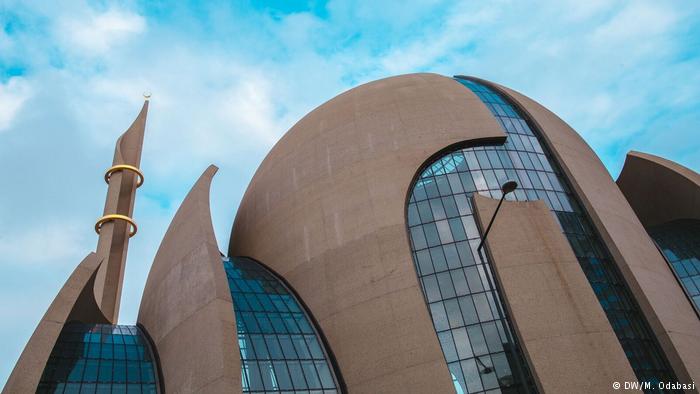Since Friday, March 9, a number of Turkish-linked institutions in Germany have been attacked by arsonists. At least three mosques, a Turkish cultural centre, and a greengrocery were targeted.1
A string of arson attacks
This series of incidents comes shortly after Germany’s Interior Ministry published new figures on Islamophobic hate crime: in 2017 alone, mosques, other Islamic institutions, as well as individuals were attacked 950 times, according to police statistics. Muslim community leaders emphasised that the number of unreported cases was likely to be significantly higher.
While these attacks were nearly exclusively the acts of far-right extremists, this weekend’s assaults appear to be driven by a different set of motives. For at least one of the incidents – an arson attack on a Millî Görüş mosque in the south-west German town of Lauffen – a video surfaced on a Kurdish political website claiming that the attack was a response to the “mass killing of civilians” in the Syrian town of Afrîn by the Turkish army.2
According to the Nûçe Ciwan (Youth News) platform, the attack was directed “against the illegal war of aggression of the fascist, Turkish state.” Yet while police have arrested a number of suspects in connection with the weekend’s events, it remains unclear whether all acts of arson were committed by Kurdish activists.3
Rising intra-communal tensions
For months and years, tensions between Turkish and Kurdish communities in Germany have been on the rise, mirroring at first the collapse of peace talks between the Turkish state and Kurdish rebel forces and subsequently the anti-Kurdish Turkish intervention in northern Syria.
Across Germany, Kurdish organisations took to the streets to protest the Turkish military offensive. Scuffles broke out at some of the demonstrations. In many instances, Kurdish protestors were joined by far-left groups, as well as by activists from The Left party and from labour unions.4
Mosques praying for Turkish victory
In this context, the Turkish-dominated mosques in Germany have come to be perceived once more as agents of the Turkish state, and as blatantly partisan in the current conflict. (Their political connections to Ankara had been in the spotlight at least since the 2016 coup attempt in Turkey.)
Already in January, there were widespread reports that DİTİB, Germany’s single largest Muslim umbrella organisation and a de facto subsidiary of the Turkish government-controlled Presidency of Religious Affairs (Diyanet), had instructed its Imams to pray for Turkish victory at their Friday services.5
Individual DİTİB Imams also called upon mosques and communities to pray for “the victory of our heroic army and our heroic soldiers”. The religious attaché at the Turkish Embassy in Berlin echoed these calls on his facebook page, only to delete them after harsh public criticism.6
Nationalist entente among Islamic organisations
Yet the ire of Kurdish activists goes beyond DİTİB, an organisation traditionally very close to the Turkish state. As DİTİB and its old foes from Millî Görüş (IGMG) have bridged their historical antagonisms in order to forge an ‘Islamokemalist’ front, other institutions and organisations are now also perceived as handmaidens of the AKP government. The attack in Lauffen against an IGMG mosque is a clear indication of this.
The national-Islamic show of unity between DİTİB and IGMG also incorporates ATİB – an Islamic cultural organisation with close ties to the Grey Wolves, a movement of Turkish ultranationalists. Fittingly, a Kurdish online source claimed that one of this weekend’s attacks had been directed against the Grey Wolves movement.7
DİTİB’s reaction
In a press release published swiftly after the weekend’s events, DİTİB linked the new batch of attacks to the recently published statistics on Islamophobic hate crime. The organisation complained that political leaders and police forces were not providing sufficient protection to its mosques.
“The silence of politicians and society in the face of everyday discrimination and attacks against mosques and Muslims is registered by right-wing extremists and by offshoots from foreign terrorist organisations at least as tacit acquiescence in their actions”, DİTİB stated.8
The referral to ‘foreign terrorists’ was a thinly veiled allusion to the PKK; a group which is considered a terrorist organisation in Germany. Nevertheless, the Turkish government as well as all those sympathetic to it still suspect German political elites of harbouring sympathies for the movement founded by Abdullah Öcalan. (Against this backdrop, it is slightly ironic that a radical Kurdish website also called for attacks on party offices of the CDU and the SPD, Germany’s two governing parties, deemed to be in collusion with the regime in Ankara.)
Role of the PKK
Yet whether the Kurdish unrest is actually condoned or even coordinated by the PKK leadership is unclear. Intelligence sources emphasise the PKK’s hierarchical leadership structures and its organisational prowess, arguing that the group is able to mount “at least isolated acts of violence” in Germany.
Sources closer to the PKK, however, assert that the leadership is unable to control Kurdish activists or sympathisers in Germany. They also point to the group’s attempt to increase its standing with German policymakers, so as to be removed from the government’s list of terrorist organisations.9
The chairman of the Kurdish Community in Germany (KGD), Ali Ertan Toprak, himself a member of the CDU party, said he was “appalled” by recent incidents. “Whoever is behind these attacks and incitements to violence, whether it is circles close to the PKK or the Turkish MIT security agency – this form of inhuman violence is absolutely unjustifiable!”10
Sources
http://www.zeit.de/gesellschaft/zeitgeschehen/2018-03/brandanschlaege-berlin-moschee-gemueseladen ↩
http://www.zeit.de/gesellschaft/zeitgeschehen/2018-03/brandanschlaege-berlin-moschee-gemueseladen ↩
http://www.zeit.de/gesellschaft/zeitgeschehen/2018-03/berlin-integrationsbeauftragter-andreas-germershausen-anschlag-moschee-terror ↩
https://www.tagesspiegel.de/berlin/proteste-in-berlin-es-demonstrieren-rechte-linke-kurden-und-google-gegner/21029212.html ↩
http://www.spiegel.de/politik/deutschland/ditib-laesst-in-deutschland-fuer-sieg-der-tuerkei-in-syrien-beten-a-1189223.html ↩
http://www.spiegel.de/politik/deutschland/ditib-laesst-in-deutschland-fuer-sieg-der-tuerkei-in-syrien-beten-a-1189223.html ↩
https://www.welt.de/regionales/nrw/article174479100/Ermittler-pruefen-Zusammenhang-von-Demonstrationen-und-Brandanschlaegen.html ↩
https://www.tagesspiegel.de/politik/kurdisch-tuerkischer-konflikt-die-brandstifter/21062212.html ↩
https://www.tagesspiegel.de/politik/kurdisch-tuerkischer-konflikt-die-brandstifter/21062212.html ↩






